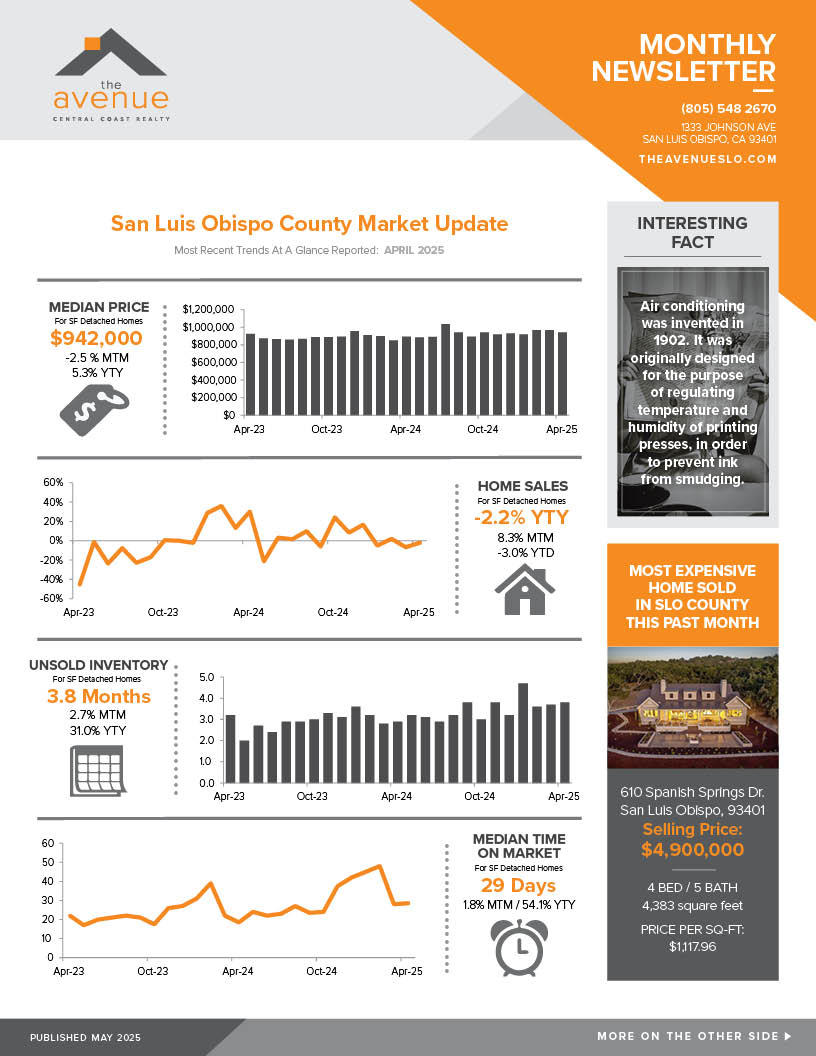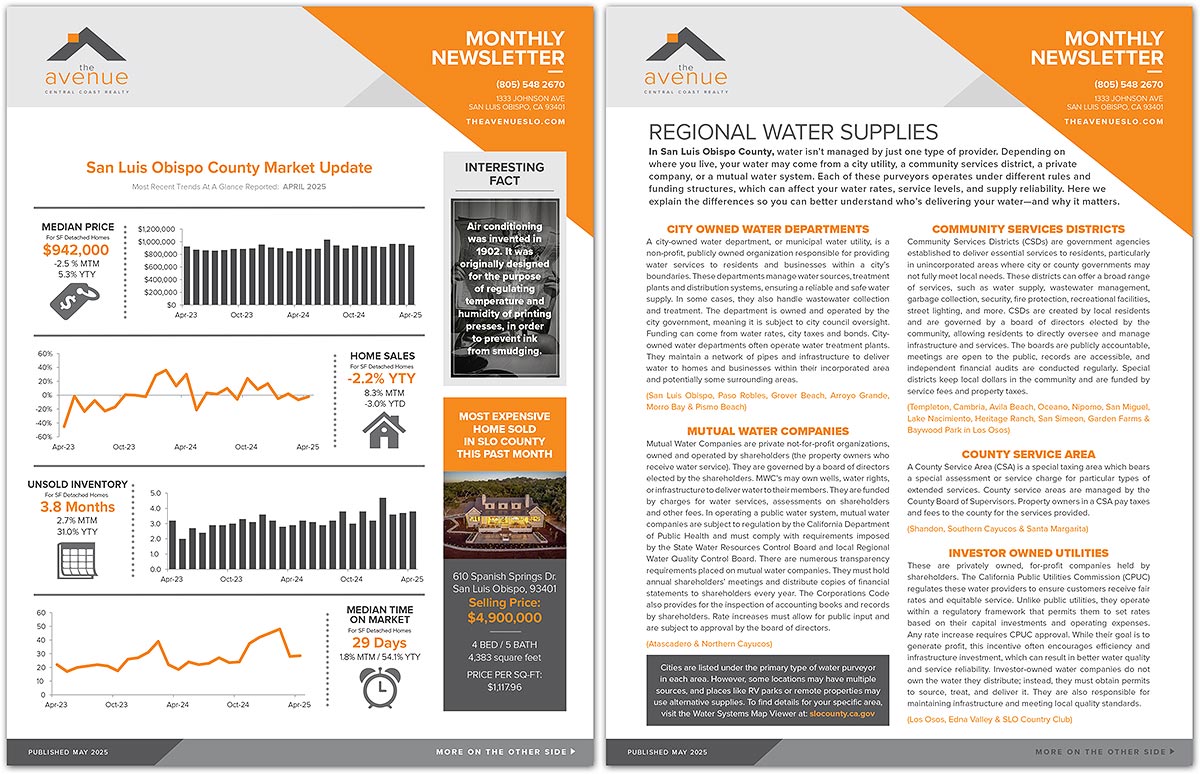SLO County Market Update & “Regional Water Supplies″ YOU LIKE WATER???
*INTERESTING FACT –
Air conditioning was invented in 1902. It was originally designed for the purpose of regulating temperature and humidity of printing presses, in order to prevent ink from smudging.
Our Regional Water Supplies
In San Luis Obispo County, water isn’t managed by just one type of provider. Depending on where you live, your water may come from a city utility, a community services district, a private company, or a mutual water system. Each of these purveyors operates under different rules and funding structures, which can affect your water rates, service levels, and supply reliability. Here we explain the differences so you can better understand who’s delivering your water—and why it matters.
City Owned Water Departments
A city-owned water department, or municipal water utility, is a non-profit, publicly owned organization responsible for providing water services to residents and businesses within a city’s boundaries. These departments manage water sources, treatment plants and distribution systems, ensuring a reliable and safe water supply. In some cases, they also handle wastewater collection and treatment. The department is owned and operated by the city government, meaning it is subject to city council oversight. Funding can come from water rates, city taxes and bonds. City-owned water departments often operate water treatment plants. They maintain a network of pipes and infrastructure to deliver water to homes and businesses within their incorporated area and potentially some surrounding areas.
(San Luis Obispo, Paso Robles, Grover Beach, Arroyo Grande, Morro Bay & Pismo Beach)
Mutual Water Companies
Mutual Water Companies are private not-for-profit organizations, owned and operated by shareholders (the property owners who receive water service). They are governed by a board of directors elected by the shareholders. MWC’s may own wells, water rights, or infrastructure to deliver water to their members. They are funded by charges for water services, assessments on shareholders and other fees. In operating a public water system, mutual water companies are subject to regulation by the California Department of Public Health and must comply with requirements imposed by the State Water Resources Control Board and local Regional Water Quality Control Board. There are numerous transparency requirements placed on mutual water companies. They must hold annual shareholders’ meetings and distribute copies of financial statements to shareholders every year. The Corporations Code also provides for the inspection of accounting books and records by shareholders. Rate increases must allow for public input and are subject to approval by the board of directors.
(Atascadero & Northern Cayucos)
Community Services Districts
Community Services Districts (CSDs) are government agencies established to deliver essential services to residents, particularly in unincorporated areas where city or county governments may not fully meet local needs. These districts can offer a broad range of services, such as water supply, wastewater management, garbage collection, security, fire protection, recreational facilities, street lighting, and more. CSDs are created by local residents and are governed by a board of directors elected by the community, allowing residents to directly oversee and manage infrastructure and services. The boards are publicly accountable, meetings are open to the public, records are accessible, and independent financial audits are conducted regularly. Special districts keep local dollars in the community and are funded by service fees and property taxes.
(Templeton, Cambria, Avila Beach, Oceano, Nipomo, San Miguel,
Lake Nacimiento, Heritage Ranch, San Simeon, Garden Farms & Baywood Park in Los Osos)
County Service Area
A County Service Area (CSA) is a special taxing area which bears a special assessment or service charge for particular types of extended services. County service areas are managed by the County Board of Supervisors. Property owners in a CSA pay taxes and fees to the county for the services provided.
(Shandon, Southern Cayucos & Santa Margarita)
Investor Owned Utilities
These are privately owned, for-profit companies held by shareholders. The California Public Utilities Commission (CPUC) regulates these water providers to ensure customers receive fair rates and equitable service. Unlike public utilities, they operate within a regulatory framework that permits them to set rates based on their capital investments and operating expenses. Any rate increase requires CPUC approval. While their goal is to generate profit, this incentive often encourages efficiency and infrastructure investment, which can result in better water quality and service reliability. Investor-owned water companies do not own the water they distribute; instead, they must obtain permits to source, treat, and deliver it. They are also responsible for maintaining infrastructure and meeting local quality standards.
(Los Osos, Edna Valley & SLO Country Club)
**Cities are listed under the primary type of water purveyor in each area. However, some locations may have multiple sources, and places like RV parks or remote properties may use alternative supplies. To find details for your specific area, visit the Water Systems Map Viewer at: slocounty.ca.gov




